Transparency, Governance, and Foreign Policy: Meeting the Challenge in the Americas
Event Summary
After more than a decade of sustained economic growth, led mainly by the high demand for commodities in East Asia, countries in the Americas are now facing new challenges. From Guatemala to Brasilia, citizens are mobilizing to demand reforms that strengthen transparency government institutions and combat corruption in the public and private spheres. Meanwhile, the economic boom has ended, and many countries are facing lower growth rates or stagnation. At the same time, the increasing role of China and other emerging nations presents opportunities but also difficulties, which require a new approach for Inter-American relations. In that regard, the thaw between Washington and Havana is an indication of a new era in U.S.-Latin America relations, and is having profound repercussions in the region.
A group of leading scholars, policy-makers and diplomats from the Americas debated about these and other issues in “Transparency, Governance, and Foreign Policy: Meeting the Challenge in the Americas” at the Wilson Center on June 9, 2015.
KEYNOTE SPEAKER: JUAN GABRIEL VALDEZ
After an introduction by President CEO and Director of the Wilson Center Jane Harman, the Ambassador of Chile to the United States Juan Gabriel Valdés pointed out that the topics of the seminar are interlinked: the way in which countries respond to problems in governance and to challenges involving corruption and lack of transparency will ultimately define the capacity of Latin American countries to promote relations with the rest of the world, promote economic integration, and become a part of broader international and regional agreements.
Beginning with issues of transparency and corruption, Ambassador Valdés said that citizen on nearly every Latin American nation have similar demands. He referred to the Chilean situation as a “democratic crisis”, generated not by economic stagnation but by the country’s success: new middle sectors, which were lifted out of poverty by economic growth and social policies implemented since the transition to democracy, are now demanding an end to inequality and corruption. In particular, he said, recent scandals have created an environment of suspicion against the relations between politics and the business sector.
Regarding economic performance, Ambassador Valdez highlighted that deepening regional integration is as important as macro-regional agreements such as the Trans-Pacific Partnership (TPP), which is now being negotiated. He presented the Pacific Alliance (formed by Chile, Peru, Mexico and Colombia) as a participatory area for deep economic integration, and a platform for economic articulation to interact with the Asia Pacific region. In that regard, he said that Chile is fully committed to the success of the TPP, which he defined as the most important trade agreement of the 21st century, and defended the need to allow innovation to flow freely. Valdés said that Latin America does not have to opt between China and the United States, since fostering relations with both countries is extremely important for the region.
To conclude, the keynote speaker defined U.S. policy initiatives regarding the Colombian peace process, immigration and relations with Cuba as a historic shift in hemispheric relations. These changes have set the stage for more cooperative relations between the U.S. and Latin America, according to Valdés.
FIRST PANEL: COMBATTING CORRUPTION AND BUILDING THE RULE OF LAW
The first discussion was moderated by Daniel Zovatto, Regional Director for Latin America and the Caribbean of International IDEA, and analyzed common problems and citizen demands regarding the state of rule of law in the Americas.
As an introduction Alejandro Ponce, Chief Research Officer of the World Justice Project, presented some elements of the situation regarding corruption and transparency in the Americas: First, some countries, like Chile and Uruguay, are in a much better situation in terms of rule of law, while others like Venezuela and Honduras are going backwards. Secondly, most Latin American societies are open, and citizens can express their opinions freely. Finally, Ponce stated that citizen security is a major concern, as well as the lack of accountability regarding corruption in the public sphere.
A central element of all presentations was the importance of strengthening institutions in order to combat corruption.
Paulo Sotero, Director of the Brazil Institute at the Wilson Center, said that in this country, resonant corruption scandals have led to a large number of arrests and convictions, reaching powerful political parties and the highest levels of government. He attributed this to the proper functioning of institutions, because after 30 years of democracy the rule of law in Brazil is strong, and accountability mechanisms and the judiciary are strong enough to enforce regulations against corruption.
Eduardo Bohórquez, Director General of Transparencia Mexicana, criticized the passing of numerous but incoherent laws on this issue in Mexico, and the creation of personalized offices, like the anti-corruption ‘tsar’, which proved inefficient. Ultimately, Bohórquez said, nothing can replace administrative reforms, and the strengthening of rule of law and institutions as tools to combat corruption. This was the idea behind recent constitutional changes in Mexico that created a national anti-corruption system.
Carlos Fernando Chamorro, director of Confidencial, presented Nicaragua as a case study on the way in which the dismantling of rule of law and state institutions has created an environment for corruption and authoritarian rule. In contemporary Nicaragua, Chamorro added, no state institution has the autonomy to successfully challenge the Executive power.
A second common aspect of this discussion was the emergence of corruption cases involving both public and private actors.
Zovatto presented recent scandals in Chile as an example of a new tendency in Latin America to focus not only on illegal activities by public officials, but also on private companies.
In that regard, Bohórquez discussed the importance of implementing administrative reforms regarding procurement procedures, to strengthen transparency and combat corruption. He praised recent changes in Mexico that regulate public-private relations and allow for the closing of a company if it has been involved in severe cases of corruption.
Chamorro, by his part, described corruption in Nicaragua as an alliance between political power, concentrated in President Daniel Ortega, and big capital. The main example of this “corporatism” is the Nicaragua canal, in which a little known Chinese businessman has announce the construction of a 50 billion infrastructure initiative to connect both coasts of Nicaragua, with no public bidding and only three hours of debate in Congress. Even if the canal is never built, Chamorro said, it can have major environmental impact, affect property rights in the area, and involve the creation of special economic areas with almost no transparency.
Thirdly, the panel discussed increased citizen expectations regarding the investigation and prosecution of corruption cases.
Sotero stated that the situation in Brazil has changed, and a new generation of prosecutors and judges are working hard against corruption, precisely because citizens are now mobilized and informed and expect these crimes to be investigated and punished.
On the other hand, Chamorro pointed out that even if Nicaragua had all the necessary laws to combat corruption, institutions were hijacked by a pact between the major political forces. In this country, he added, the government enjoys broad popular support because poor citizens and the unemployed believe that their interests are being protected through clientelistic mechanisms.
Bohórquez highlighted the need to distinguish between “transparency” and “anti-corruption”, since these concepts are not synonyms. Usually, he explained, citizens can access relevant public information, but institutions such as the judiciary are not strong enough to enforce accountability. Therefore, he added, it is essential to translate citizen demands in institution-building, which will require political leadership to make long-lasting reforms.
A final element of the panel was the importance of international conventions and mechanisms. For Sotero, a key to the investigation of the Petrobras case is the fact that this company is registered in the United States, as are other 34 major Brazilian companies. The integration of Brazil into the world economy, therefore, has imposed higher standards on anti-corruption on the country. Bohórquez, talking about the Mexican case, referred to the OECD convention on anti-corruption, one of the most important international instruments on this area. He added that Latin American countries have agreed to abide by this convention, but they rarely apply it.
SECOND PANEL: HEMISPHERIC RELATIONS IN LEANER TIMES: WHAT IS THE PATH FORWARD?
The second panel was moderated by Cynthia J. Arnson, Director of the Latin American Program at the Wilson Center, and focused on the challenges and opportunities that the region is facing in terms of hemispheric relations and integration with the rest of the world.
The first main topic of the discussion was the increasing diversity of approaches and objectives in the foreign policies of the region.
Ambassador Gil Rishchynski, representative of Canada to the United Nations, described the way in which his country has been increasing its role in hemispheric affairs in the last 25 years. Showing its commitment to be an active country of the Americas, Canada became a member of the OAS in 1990, and is now an observer member of the Pacific Alliance. In that regard, Ambassador Rishchynski said, people to people connections have been the key of Canada’s new policy towards the region. He pointed out that more than 18,000 Latin American students currently attend Canadian universities.
Maria Herminia Tavares de Almeida, professor at the Universidade de Sao Paulo, referred to the foreign policy of Brazil, marked by its combination of a global and a regional agenda. Globally, Tavares de Almeida said, Brazil is part of a push by emerging countries for more autonomy and decision making power. Regionally, the main challenges are combating drug trafficking (Brazil is now a main consumer market for cocaine), and cases of crisis of democracy, including the Honduran and Paraguayan situations in the past, and that of Venezuela currently.
Roberto Russell, from Torcuato Di Tella University in Buenos Aires, pointed out that Brazil’s rise marks the first time in which a regional power has emerged in South America. Describing the increasing diversity in Latin America (and different foreign policy approaches among the countries), Russell highlighted that this should not be reduced to the emergence of leftists governments in the last 15 years.
Directly related to this, the second element of the debate was the possibilities of cooperation between the United States and Latin American countries.
Far from the homogeneity of the 1990s, characterized by close inter-American relations; the new normal, Russell said, is the combination of collaboration and challenges vis-a-vis the United States. Given this background, it will be critical to think about relations between the U.S. and Latin America in more flexible, variable terms, in which different countries will have different degrees of cooperation with Washington in terms of the global and regional agenda. The coordination of big hemispheric agendas, Russell warned, will be unlikely in the future. Consequently, regional instances of cooperation such as CELAC will hardly have profound impacts.
Richard Feinberg, professor in the School of Global Policy and Strategy at the University of California, San Diego, analyzed the new reality of the region through the example of the recent Summit of the Americas, in Panama. That event, Feinberg described, was a triumph of American pragmatic idealism, as demonstrated by the unprecedented meeting between presidents Barack Obama and Raúl Castro. Agreeing with Russell, Feinberg stated that Washington will likely build ad-hoc coalitions in the Hemisphere to deal with specific issues, taking advantage of the fact that American leadership is once again respected in most countries.
Tavares de Almeida also considered that conditions exist for further regional cooperation. For instance, there have been instances of collective protection of democracy, including the cases on Honduras and Paraguay in the past, and certain movement regarding the situation in Venezuela (even if these policies are not always public).
Linked to this issue, a final discussion revolved around the emergence of new middle classes, and the importance of strengthening democratic institutions and public services to address their demands.
For Ambassador Rishchynski the main challenge in this regard is to ensure citizen access to justice institutions, and to increase the quality of public services like education and health, since merely expanding coverage will not be enough. He highlighted the role Canada is playing in supporting these initiatives in the Americas, and the need to include citizens in the formal economy though a “democratization of capital”. He said, however, that old policies of “technical assistance” are over, and that the way to strengthen institutions is to collaborate with local civil society.
Feinberg agreed, and described the importance of strengthening governance to increase the quality of public spending, regulate public-private relations, and foster economic opportunities. He described the role of a growing civil society in developing democracy and demanding institutional change as a major success.
Regarding political changes, Russell also noted that these new actors could pose challenges to liberal democracy in the region and closer relations with the United States, since many emerging groups resist these two elements. These “rejectionist” stances are a key factor in the diversity of Latin America, and can hinder further policy coordination in instances such as the OAS. Tavares de Almeida agreed, but noted that regional institutions retain their relevance, including the role of the inter-American human rights system. Rishchynski concluded that the region has created a large number of institutions, but the challenge is to increase performance. In that regard, having a debate on how to define democracy will be key to move forward, since all countries elect their leaders through elections, while some are moving backwards in terms of freedom of speech and assembly,
CLOSING KEYNOTE: ROBERTA JACOBSON
To conclude this seminar, the Hon. Jane Harman introduced Assistant Secretary of State for Western Hemisphere Affairs Roberta Jacobson, praising her role in recent policy changes by the United States regarding its relations with Latin America. Assistant Secretary Jacobson´s introductory remarks discussed the main issues in U.S.-Latin America relations.
She began by highlighting new possibilities of cooperation between the United States and the region, particularly since the announcement of the thaw with Havana; the gradual implementation of a new counter-narcotics policy, which moved beyond supply control and includes preventive measures; and deep reforms to immigration regulations in the United States. This new tone has allowed the US to engage with various nations, of different ideological identities, while others remain relatively isolated.
Additionally, she praised economic growth in the region in the last decade but described inequality in as a persistent problem, which is why promoting entrepreneurship, small businesses, and technical education (mainly through exchanges and the 100,000 strong programs) and is a central aspect of US hemispheric policy. These, according to Jacobson, are powerful tools to promote social inclusion in the region. In that regard, she said, recent development of the energy sector in the hemisphere presents both a tremendous opportunity and a challenge to governments.
On citizen security issues, Jacobson described the problem as enormous, and still not resolved. Recent achievements must be sustained, and she expressed US support to the Colombian peace process and for Mexico’s struggle to regain control of its territory. In Central America, she pointed out that the U.S. must tackle the root causes of violence: weak institutions, poverty, inequality, and lack of opportunities. This is not only a moral imperative, Jacobson said, but an effective policy to combat insecurity and reduce migration. A sustained effort in this regard, coordinating with Europe and international financial institutions, will be essential.
Assistant Secretary Jacobson also addressed the state of democracy in the region. She expressed the need of other Latin American countries to demand freedom of protest and speech in Venezuela, including the release of political prisoners. She highlighted that civil society and citizens are demanding institutional reforms and an end to corruption peacefully throughout the region, which will likely have positive impacts in the near future.
Regarding the change in US-Cuban relations, she said that a new policy was needed after five decades of isolation, but admitted that expectations will need to be managed, since transformations will not happen immediately and legislative change in Washington will take time. She praised “cuentapropistas”, small Cuban entrepreneurs, and presented them as a priority for US policy towards the island. A second major element in future relations with Cuba, she said, could be telecommunications. Developing this sector will be necessary for the island to insert its society and economy into the world, as will be adopting international standards regarding financial activities. However, she pointed out that institutions of which the US is a member, such as OAS and the IDB, will not engage fully with Cuba in the short term.
Speakers
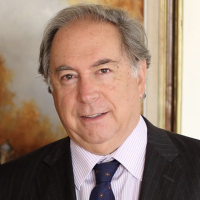
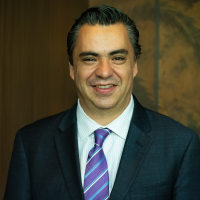


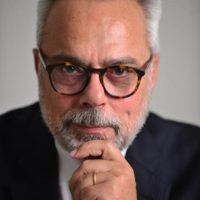
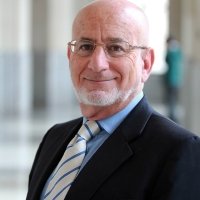
Professor Emeritus, University of California, San Diego; Former Senior Director for Inter-American Affairs at the National Security Council


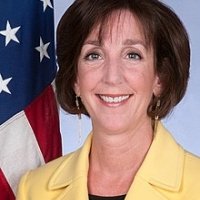
Hosted By

Latin America Program
The Wilson Center’s prestigious Latin America Program provides non-partisan expertise to a broad community of decision makers in the United States and Latin America on critical policy issues facing the Hemisphere. The Program provides insightful and actionable research for policymakers, private sector leaders, journalists, and public intellectuals in the United States and Latin America. To bridge the gap between scholarship and policy action, it fosters new inquiry, sponsors high-level public and private meetings among multiple stakeholders, and explores policy options to improve outcomes for citizens throughout the Americas. Drawing on the Wilson Center’s strength as the nation’s key non-partisan policy forum, the Program serves as a trusted source of analysis and a vital point of contact between the worlds of scholarship and action. Read more


Mexico Institute
The Mexico Institute seeks to improve understanding, communication, and cooperation between Mexico and the United States by promoting original research, encouraging public discussion, and proposing policy options for enhancing the bilateral relationship. A binational Advisory Board, chaired by Luis Téllez and Earl Anthony Wayne, oversees the work of the Mexico Institute. Read more
